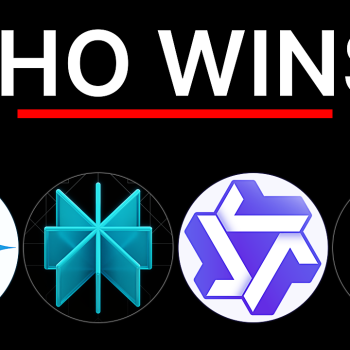Following up from my previous post (I started working on this one before that one, in case you were curious) I asked the AI chatbot Chat-GPT3 one of the key questions that I am seeking to answer in the book I am currently working on. From its answer, I don’t think I need to worry about being replaced. Human creativity can create new knowledge in the study of history in ways that AI currently cannot, because AI does not understand in the human sense.
What can we learn about John the Baptist by studying Jesus of Nazareth?
John the Baptist was a contemporary of Jesus of Nazareth and played a significant role in Jesus’ ministry. According to the New Testament, John was a prophet and preacher who was known for baptizing people in the Jordan River as a sign of repentance. He preached a message of repentance and called on the people of Israel to turn back to God.
John is also known for his relationship with Jesus. According to the Gospels, John baptized Jesus in the Jordan River and later recognized Jesus as the Messiah. In the Gospel of John, John the Baptist says, “I myself did not know him, but he who sent me to baptize with water said to me, ‘He on whom you see the Spirit descend and remain, this is he who baptizes with the Holy Spirit.’ And I have seen and have borne witness that this is the Son of God” (John 1:33-34).
There are also several references to John the Baptist in the teachings of Jesus. In the Sermon on the Mount, Jesus says, “For I tell you, among those born of women there is no one greater than John” (Matthew 11:11).
Overall, studying Jesus of Nazareth can provide insight into the role and significance of John the Baptist in early Christianity and the relationship between the two men.
Here are some other questions I asked and the answers I received:
Did the Mandaeans evolve out of the followers of John the Baptist?
The Mandaeans are a religious group that has existed since ancient times. Their beliefs and practices are distinct from those of other groups, and there is no evidence to suggest that they evolved out of the followers of John the Baptist. In fact, the Mandaeans have a unique religious tradition that predates the advent of Christianity. While they do revere John the Baptist as a prophet, their beliefs and practices are not directly connected to those of the followers of John the Baptist.
Who are the secret Jews of Portugal?
The secret Jews of Portugal, also known as Marranos, were Jews who were forced to convert to Catholicism during the period of the Inquisition in Portugal. However, many of these individuals continued to practice Judaism in secret, often in fear of persecution. The term “Marrano” comes from the Spanish word for “pig,” and was used by the Inquisitors to refer to these secret Jews. Today, there are still some individuals in Portugal who identify as Marranos, and some have rediscovered their Jewish heritage and practices.
Does a visiting fellow have a lifelong association with Magdalen College, Oxford?
A visiting fellow at Magdalen College, Oxford is typically a scholar or academic who is invited to spend a period of time at the college in order to conduct research or teach. A visiting fellowship is usually a temporary position, and a visiting fellow does not necessarily have a lifelong association with the college. The length of a visiting fellowship can vary, but it is typically for a few months or a year. After their fellowship ends, a visiting fellow may continue to have a relationship with the college, but it is not a lifelong association.
What do you think? What’s your impression in general and then specifically about my own interaction with this technology?
There has been a lot more in the news about this topic. Here are a few other articles and things that I’ve become aware of on this technology.
I have to begin with the fact that someone has made an “Ask Jesus!” chatbot. I have not provided them with an email in exchange for three days and three nights of free access, but may decide I have to for research purposes at some point. If you try it, please let me know about your experience!
Also particularly worth drawing attention to in the substack piece by Erik Hoel, “Passing the Turing test turns out to be boring“, is this: ‘apparently there is going to be some sort of hidden cryptography in GPT utterances that can be used to trace its outputs back to their source. Weep, poor students, who will not be able to use ChatGPT to write their essays (much as there was once the “gentleman’s C” there is now, accounting for grade inflation, the “AI’s A-”).’
Jim Clarke, “Return of the Dread AI”
Conversing with ChatGPT about Jaws, Mimetic Desire, and Sacrifice
Updating Your Course Syllabus for ChatGPT
Mark Grabe says he was wrong about ChatGPT
Robert Runté’s microfiction story “When AI Goes Rogue” relates not just to AI but another interest of mine – but I won’t say which one and spoil it!
AI Alignment is Distinct from its Near-Term Applications
Tesla “Self-Driving” Mode Blamed for 8 Car Crash
Related to John the Baptist:
Jordan unveils $100 million master plan for the second millennium of Jesus’ baptism
Allan Bevere on John’s question from prison
Finally, don’t miss Charles Häberl’s podcast interview about the Mandaeans. “Häberl outlines an ambitious scholarly programme: if we truly want to study Gnosticism, the study of the Mandæans, the living late-antique Gnostic tradition, must play a central role in that endeavour.”













